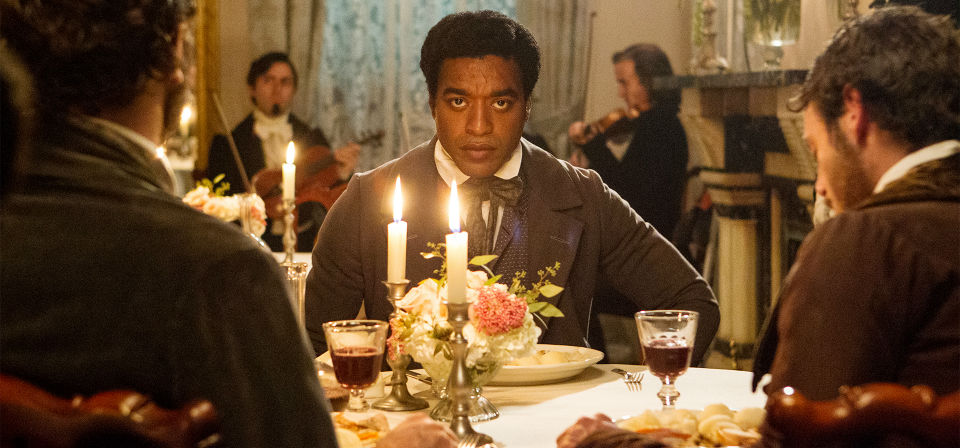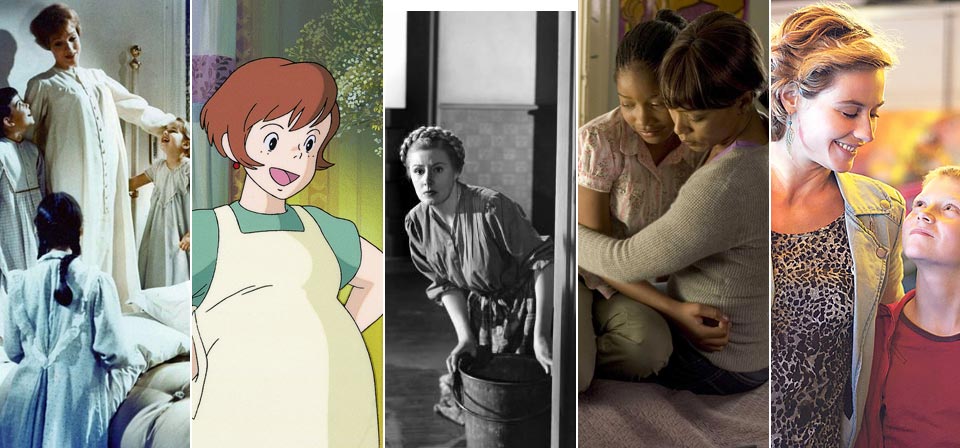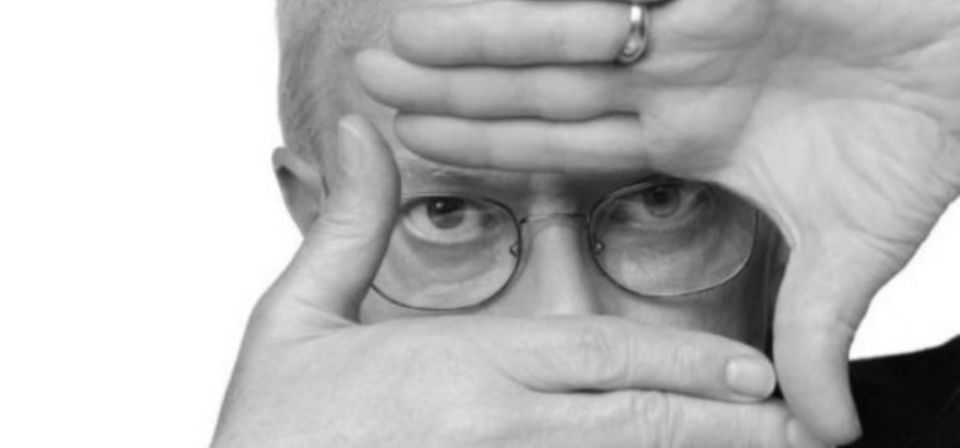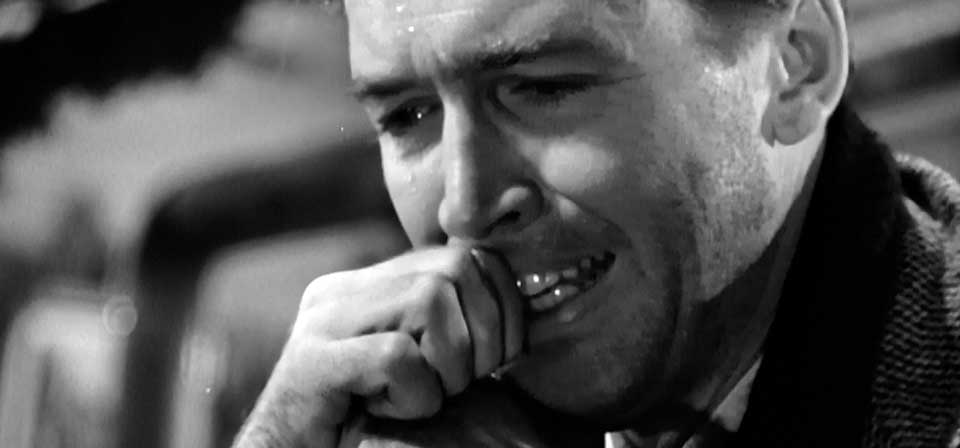Articles
Exorcism in the Movies
In a way, The Exorcist is a pivotal film — the indispensable link between the Catholic-inflected piety of Golden Age Hollywood and the demonic world of latter-day horror.
The Virgin Mary at the Movies
Mary of Nazareth, now touring North America in isolated screenings hosted by Ignatius Press, is the latest in a number of Gospel films over the last couple of decades focusing in a special way on the role of the Blessed Virgin in the Gospel story.

The Untold Story of Slavery? Why 12 Years a Slave is Essential
I can’t believe I never realized it until now, but I can’t think of another fact-based motion picture about the slave experience in America — that is, a movie about slavery in the United States told from the point of view of actual, historical slaves, many of whose stories were published by abotionists prior to the Civil War and by civil rights activists after it.
Over the Rainbow: The Wizard of Oz Turns 75
So many songs about rainbows and what’s on the other side? What was Kermit talking about? There’s only one song like that … and one movie that embodies the childhood magic Jim Henson wanted to evoke.
The Summer’s Best-Kept Secret: From Up on Poppy Hill
Co-written by Ghibli co-founder Hayao Miyzaki and directed by his son Goro Miyazaki (Tales From Earthsea), From Up on Poppy Hill is a gently naturalistic departure from the high-flying fantasy for which the studio is best known.
So Long! Farewell!
I enjoyed reviewing movies this summer far more than I enjoyed the movies themselves — and perhaps my readers enjoyed the reviews more than the movies as well.
Big Brother on the Big Screen
Have Hollywood movies been softening us up for NSA-style surveillance?
SDG’s Very, Very Little Movie Glossary
This little essay is barely a footnote to Ebert’s book. Still, in the dozen or so years that I’ve been writing movie reviews, I’d like to think I’ve come up with a few witty, possibly even useful terms — Everything Movie, Medieval Grunge and Mythology-Bound among them — that might contribute to movie discussion.
Top 10 Movie Dads
Picking the top 10 movie dads was both easier and harder than picking the top 10 movie moms. Easier, because there were more candidates to choose from — and harder for the same reason!

Top 10 Movie Moms
When I set out to make a list of great movie moms in honor of Mother’s Day, I knew it wouldn’t be easy — but I soon found it even harder than I thought. Let’s face it: Great mothers are in short supply in the movies.

How I Believe in Roger Ebert
Just over a month before his death on Easter Thursday, Roger Ebert wrote a blog post titled “How I Am a Roman Catholic” — a follow-up of sorts to a 2009 post called “How I Believe in God.”
Overlooked Family Fare
It’s spring break, or summer vacation, and the grandkids are visiting. Or you’re looking for a DVD for a birthday present. You want three things: a) something worthwhile (not junk); b) something they’ll enjoy (not just high-minded or educational fare); and, crucially, c) something they haven’t already seen to death.
Religious Vision: Les Misérables and Anna Karenina
Have today’s movies lost religion? Not necessarily — but sometimes it helps to know where to look. For instance, mainstream films are more likely to include sympathetic depictions of religious faith in period pieces than in stories set in the present day.
2012: The year in reviews
A masterpiece on the importance of fatherhood, from filmmakers honored by the Vatican, is among the year’s best films.

Against Capra’s Critics: In Defense of It’s a Wonderful Life
Perhaps the most beloved of Christmas movies, Frank Capra’s sleeper classic It’s a Wonderful Life has inevitably become a target of seasonal, iconoclastic culture-warmongering.
In Praise of Pixar Short Films
One of the more striking marks of Pixar’s innovative stature and impact on the world of Hollywood animation has been their pioneering revival of the long-neglected animated short film prior to the feature (at least prior to animated features) as an industry staple.
Ghosts of the Abyss: The Other James Cameron Titanic Film
If you see only one James Cameron-directed movie about the Titanic — and you should — see the one that doesn’t star Kate and Leo.
Mirror Mirror and Fairy-tale Revisionism
I do take issue, though, with Hollywood’s current obsession with “dark,” “gritty,” “edgy” fare threatening to crush any sense of wonder and fantasy. What a joy, then, that Tarsem Singh’s Mirror Mirror offers a gorgeous, fantastic fairy-tale world bursting with extravagant imagination and splendor.
Fortnight of Films: 14 Films for the Fortnight for Freedom
In support of the Fortnight for Freedom, the National Catholic Register and Decent Films are pleased to present a selection of 14 films, chosen by me, all in some way engaging themes of religious liberty, moral conscience and commitment faith in the face of pressure and persecution have been reflected in cinema.
The Secret World of Studio Ghibli
It’s still one of the better-kept secrets of family entertainment that the most imaginatively daring and influential animation house in the world isn’t Pixar, but Japan’s Studio Ghibli, best known for co-founder and animation virtuoso Hayao Miyazaki. Miyazaki is revered in animation circles, but Ghibli films haven’t yet become the phenomenon in the States that they are in Japan and around the globe.
Recent
- Benoit Blanc goes to church: Mysteries and faith in Wake Up Dead Man
- Are there too many Jesus movies?
- Antidote to the digital revolution: Carlo Acutis: Roadmap to Reality
- “Not I, But God”: Interview with Carlo Acutis: Roadmap to Reality director Tim Moriarty
- Gunn’s Superman is silly and sincere, and that’s good. It could be smarter.
Home Video
Copyright © 2000– Steven D. Greydanus. All rights reserved.